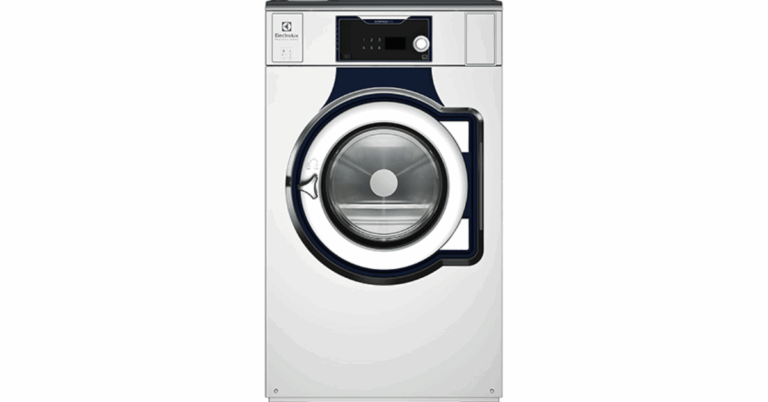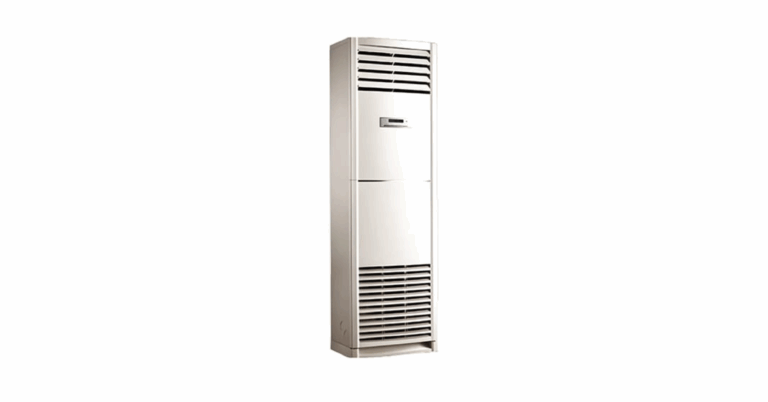150 L Marine Refrigerator 110V Distributor – Supplying Reliable Cold Storage for Cruise Vessels
A dedicated 150 L Marine Refrigerator 110V Distributor plays a pivotal role in equipping cruise ships with medium capacity, ship grade refrigeration systems. These distributors specialize in supplying rugged refrigeration units with 150 litre capacity, built for marine conditions and configured for 110 V electrical systems used onboard certain vessels. They ensure that ships have the right storage solution for perishable goods, beverages, and galley items balancing size, power efficiency and durability in challenging environments.
Why a 150 L Marine Refrigerator with 110V Matters
Onboard a cruise ship, space—and energy—are both at a premium. A 150-litre refrigerator represents an excellent mid-capacity option: large enough for significant storage of perishables, yet compact enough to fit into cabins, crew areas or service zones. When matched with a 110 V system (common in many vessels, especially those following North American standards), it ensures direct compatibility and avoids complex voltage conversions. A distributor who focuses on marine-rated 150 L 110 V refrigerators ensures compatibility, proper marine certification, corrosion-resistant build quality and global service support critical for reliability at sea.
Key Features of Marine 150 L Refrigerators Supplied by Distributors
When you purchase through a marine refrigeration distributor, the 150 L units offered will typically include the following specification highlights:
-
Capacity & Footprint: 150 litres gives sufficient volume for foodstuffs, beverages or medical cold storage, while maintaining a relatively small footprint (ideal for limited space onboard).
-
Voltage Specification: With 110 V (and often 60 Hz) power, the unit integrates into vessels with that standard, avoiding the need for step-up/down transformers.
-
Marine-Grade Construction: Corrosion-resistant materials (such as stainless steel or specially coated steel), heavy-duty hinges, sealed insulation and motion-resistant mounting.
-
Energy Efficiency: High quality insulation, efficient compressors and door-seal strategies to minimize power draw a key factor on ships with limited generation capacity.
-
Thermostatic Control & Monitoring: Precise temperature control allows safe storage of perishables, along with logging or alert systems for fuels such as HACCP compliance.
-
Compact Form Factor: Slim, upright or under-counter formats to fit cabins, crew quarters or auxiliary rooms without blocking flow or access.
-
Service & Spare-Part Support: The distributor provides spare parts, documentation and service networks to maintain the unit over its marine service life.
Without such features, a standard domestic refrigerator might fail prematurely onboard due to corrosion, vibration or electrical mismatch.
Applications Onboard Cruise Vessels for 150 L Marine Refrigerators
The 150 L marine refrigerator supplied by a distributor can be used in many areas aboard:
-
Crew Mess or Crew Quarters: Serving crew food, beverages and snacks comfortable living conditions help retention and morale.
-
Cabin and Suite Use: Some higher-end cabins or VIP suites may require in-room refrigeration; 150 L offers good size for guest convenience.
-
Service and Galley Overflow: In kitchens where main appliances are in use, a mid-capacity fridge can act as backup or secondary storage.
-
Medical Storage: For parts of the ship’s medical or infirmary areas where a moderate volume chill is required for medicines, samples or cold-pack items.
-
Beverage, Snack Stations & Lounges: Enables chilled drink and snack storage near passenger seating zones or VIP areas, improving guest experience.
Because the capacity is moderate rather than ultra-large, the 150 L fridge is versatile, occupies less space, and is more cost-efficient in areas with moderate storage needs.
Benefits of Working with a Specialist Distributor
A good marine refrigeration distributor provides more than just the product; they deliver assurance and support:
-
Marine Certification & Specification Accuracy: They ensure the unit meets shipboard safety standards, power compatibility and board movement tolerance.
-
Global Service & Parts Supply: Because cruise ships travel worldwide, distributors with a global network ensure spares and service are available in many ports.
-
Right Sizing & Selection Support: Distributors help select the correct capacity (150 L in this case), orientation, voltage and installation details suited to a specific ship’s layout.
-
Logistics and Installation Support: Handling shipping, trunking, power supply documentation, and working with shipyard and vessel engineers.
-
Warranty and After-Sales Service: A reliable distributor offers warranty coverage, responsive technical support and long-term service planning.
-
Energy Efficiency and Lifecycle Cost Advice: They advise on power usage, insulation, placement, ventilation to reduce operational cost over years.
By choosing a specialist distributor, ship operators reduce risk, ensure installation compatibility and improve reliability of their onboard refrigeration assets.
Installation Considerations & Best Practices
To maximize the benefit of a 150 L marine refrigerator onboard a cruise ship, installation and environment must be managed carefully:
-
Electrical Compatibility
Confirm that the vessel’s electrical system supports 110 V (possibly 1 phase or 3 phase) with correct frequency (often 60 Hz). Soft-start units or phase-corrected motors might be necessary. -
Ventilation & Airflow
The refrigeration unit’s condenser must be located in a well-ventilated area. Tight compartments or heat-loaded zones can diminish cooling performance or shorten lifespan. -
Mounting & Vibration Isolation
Ships move, so refrigeration units must be secured with marine-grade fasteners and mounted with vibration isolators if necessary. Doors must latch securely so they won’t open during motion. -
Space Planning & Accessibility
Ensure clearance for the door swing, front access for servicing, rear access for condenser or compressor servicing. In cramped spaces, frontal access may be limited—plan accordingly. -
Door Use & Stock Management
Because frequent door openings degrade performance, zone storage near the door, ensure rapid access, avoid overfilling and maintain airflow inside the unit. -
Maintenance Access
Access panels, condenser coils, drain lines and control panels should be reachable without major disassembly or blocking traffic flow onboard. -
Integration with Monitoring Systems
If the ship uses central monitoring (BMS) or HACCP compliance logs, the fridge may connect to sensors or alarms that track internal temperature and issue alerts for deviations.
Maintenance & Operational Guidelines
Even the best 150 L marine refrigerator will underperform without proper maintenance. The distributor should provide guidance on the following:
-
Regular Cleaning: Wipe interior surfaces, clean door gaskets, empty and sanitize contents, maintain hygiene.
-
Coil and Condenser Cleaning: Especially in marine environments, salt spray and dust accumulate cleaning the condenser coils ensures efficient heat rejection.
-
Door Seal Inspection: Ensure gasket integrity; replace as required. A leaking door causes frost build up, over-work of compressor and increased energy usage.
-
Temperature Monitoring & Logging: Keep a log of internal temperature, verify set-points, calibrate thermostat if necessary.
-
Defrosting: Some units may require manual defrosting. Excess ice build-up hampers cooling performance and increases energy draw.
-
Electrical Checks: Verify wiring, inspect for corrosion, ensure that vibration has not loosened terminals or mounting.
-
Spare Parts Availability: The distributor should supply key spares (gaskets, thermostats, fans, filters) for quick replacement when needed.
With proactive maintenance, the unit’s lifespan increases, energy consumption remains lower and downtime is minimized.
Business Impact: Efficiency, Food Safety & Guest Satisfaction
From a business perspective, selecting and distributing the right 150 L 110 V marine refrigerator yields tangible benefits:
-
Reduced Waste: Proper cold storage reduces spoilage of perishables foods, beverages saving cost and improving sustainability.
-
Improved Guest Service: A fridge located near service zones allows better guest experience by keeping supplies fresh and accessible.
-
Operational Flexibility: Mid-capacity units like 150 L avoid over-investment in oversized equipment and allow tailoring of storage based on need.
-
Power Efficiency: Especially on long voyages, efficient 110 V marine refrigerators reduce generator loading, fuel consumption and environmental footprint.
-
Maintenance & Lifecycle Cost Savings: With a specialist distributor backing service, units maintain performance over time, reducing unexpected breakdowns and expensive replacements.
-
Safety and Compliance: Proper refrigeration supports food safety programs (HACCP), shipboard health inspections and regulatory compliance.
These factors combine to provide return on investment not just from procurement cost but over the lifecycle of the refrigerator onboard.
Choosing the Right Distributor & Supplier
Ship operators should evaluate prospective 150 L marine refrigerator distributors on several criteria:
-
Marine Experience: How much experience they have supplying refrigeration for cruise ships and marine environments.
-
Product Range: Whether they carry models specifically rated for marine use, 110 V versions, corrosion-resistant materials, marine certification.
-
Installation Support: Do they provide installation drawings, onboard support, training for shipboard crew, commissioning checks.
-
Spare Parts Network: Global spares, ability to serve ships in remote locations or at sea.
-
Technical Documentation and Certification: Provide full manuals, marine certifications, compliance documentation.
-
Service Contracts: Maintenance support, preventative maintenance plans, logging of service events.
-
Energy-Efficiency & Upgrades: Advice on power consumption, energy modelling, potential upgrades or expansion.
Selecting a strong distributor is as important as the product itself; the right partner ensures the equipment works as intended throughout its service life.
Future Trends in Marine Refrigeration
The marine refrigeration industry continues to evolve distributors supplying 150 L marine refrigerators must keep up with innovations:
-
Inverter Compressor Technology: Variable-speed compressors adapt to load, reduce energy use and extend lifecycle.
-
Low-GWP Refrigerants & Environmental Compliance: New refrigerants align with IMO and industry environmental targets.
-
Smart Monitoring & IoT Integration: Refrigerators may connect to ship’s network for remote diagnostics, predictive maintenance, and data logging.
-
Modular Systems & Upgradability: Refrigeration modules that can be expanded or reconfigured reduce future upgrade cost.
-
Enhanced Materials & Insulation: Better insulation and door tech reduce energy loss, especially important in high-ambient marine conditions.
-
Focus on Lifecycle Cost of Ownership: Not just purchase price but energy, maintenance, downtime, operational impacts.
Distributors who can offer access to these technologies provide future-proof solutions to ship operators.
Conclusion
Working with a specialized 150 L marine refrigerator 110 V distributor offers significant advantages for cruise ships and marine operations. From ensuring compatibility with shipboard power systems to offering marine-rated construction, proper logistics, installation support and service networks, the right distributor ensures that the refrigeration unit will perform reliably over years at sea. Mid capacity units like the 150 L model strike an excellent balance of storage volume, footprint, energy consumption and cost making them ideal for many onboard applications.
By focusing on correct specification, installation best practices, regular maintenance and choosing a distributor with marine-HVAC/R expertise, vessels can secure efficient cold storage that supports guest satisfaction, crew welfare, food safety and operational reliability. In today’s competitive cruise-ship environment, such refrigeration equipment isn’t just a utility it’s part of delivering performance, service and brand promise.







